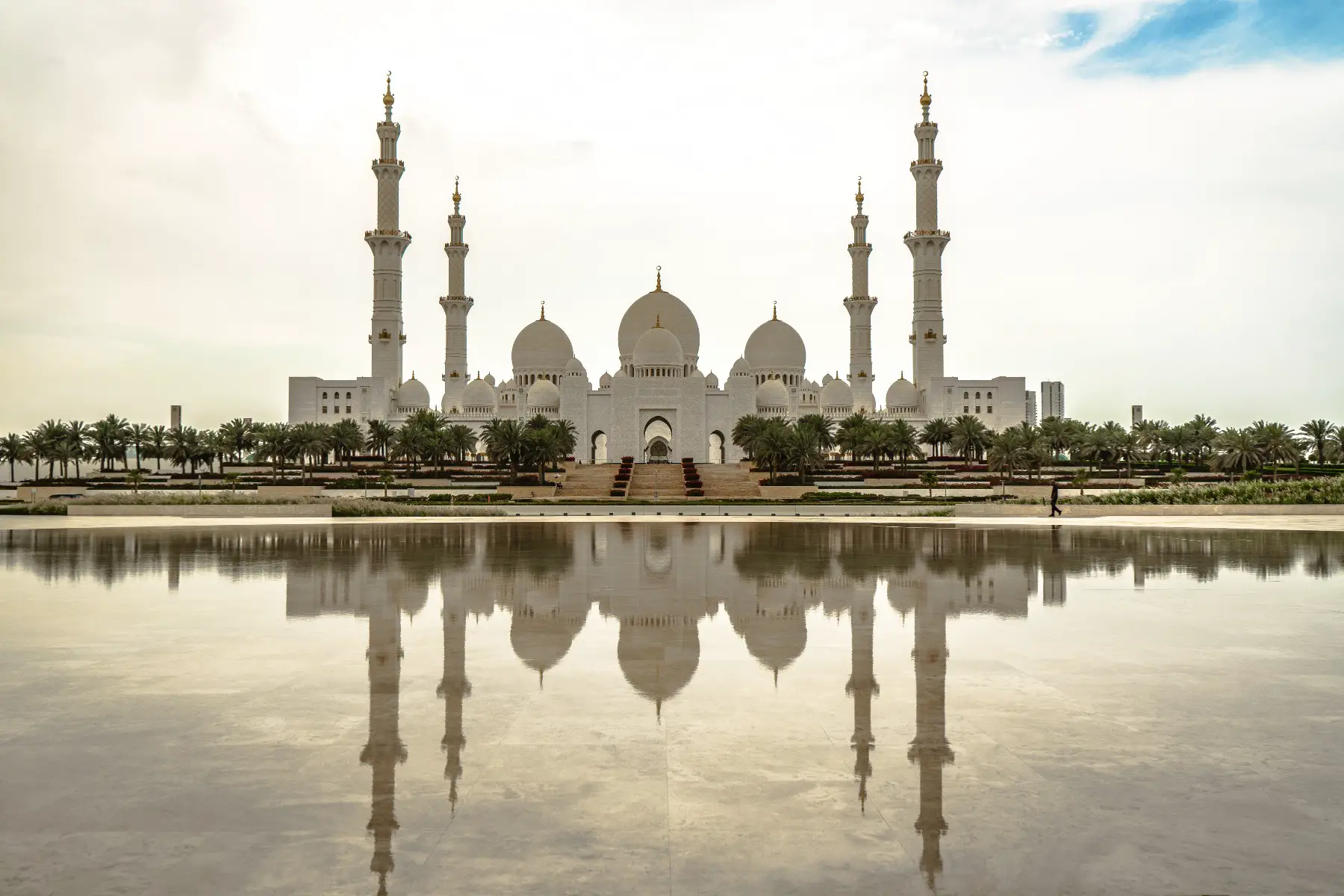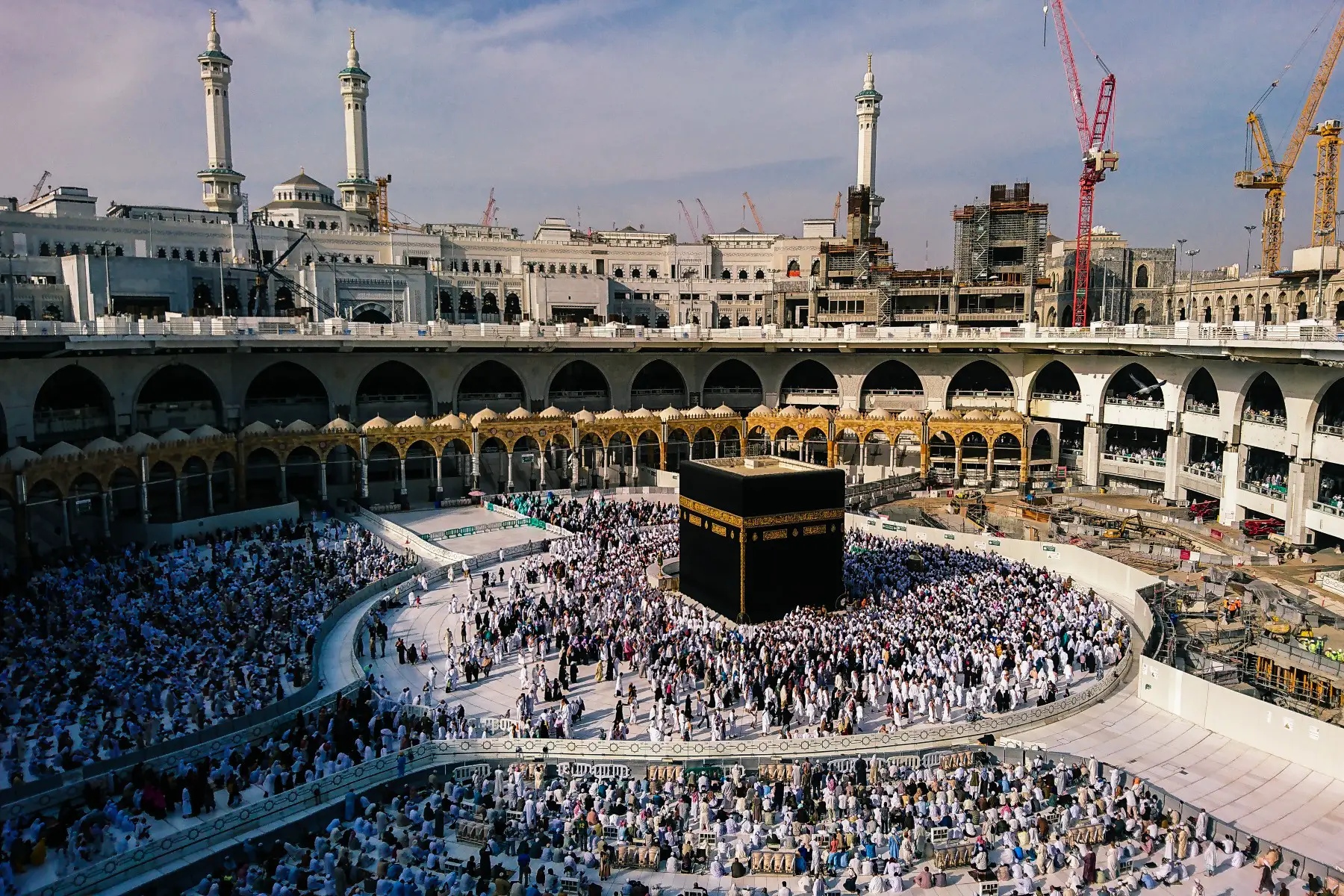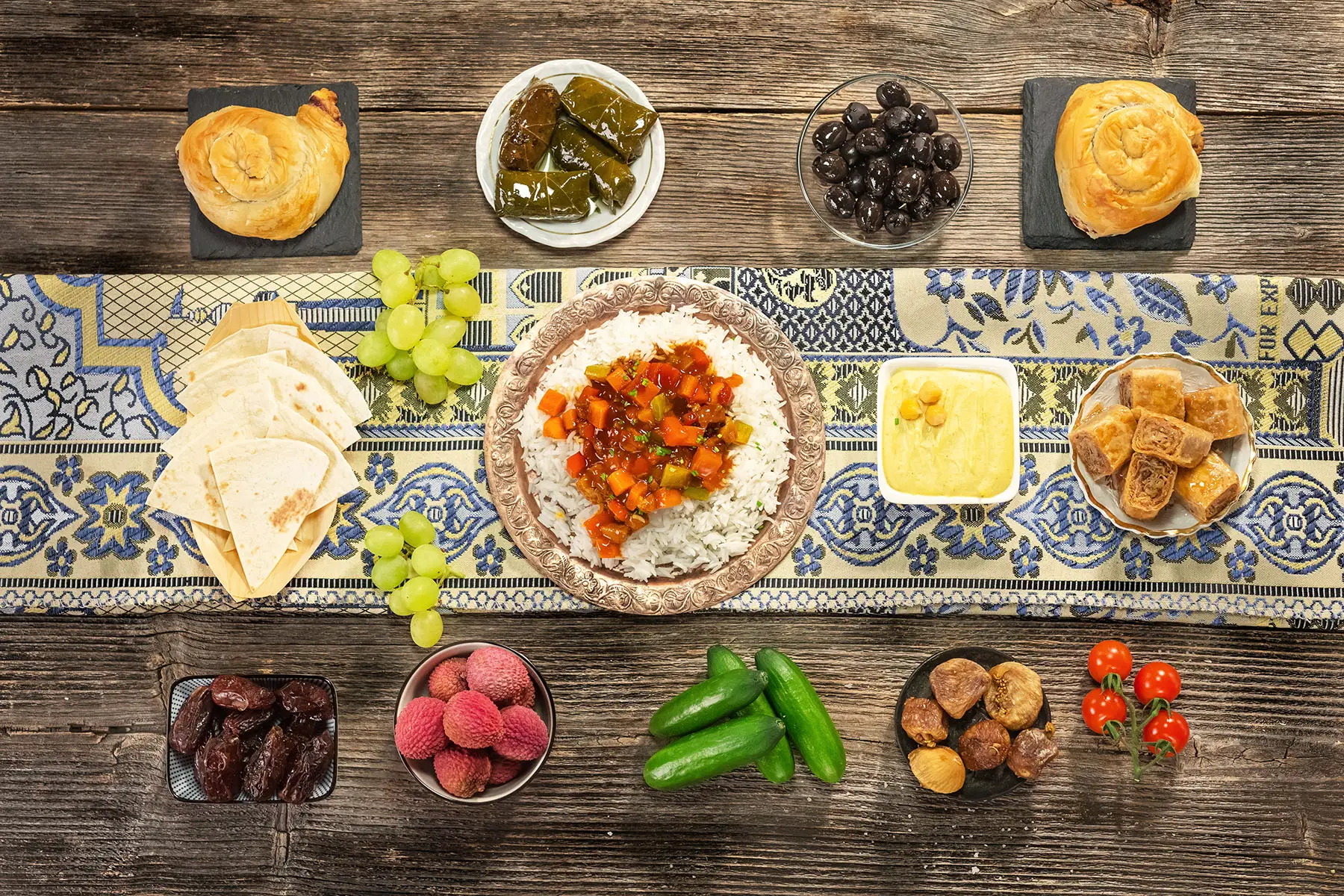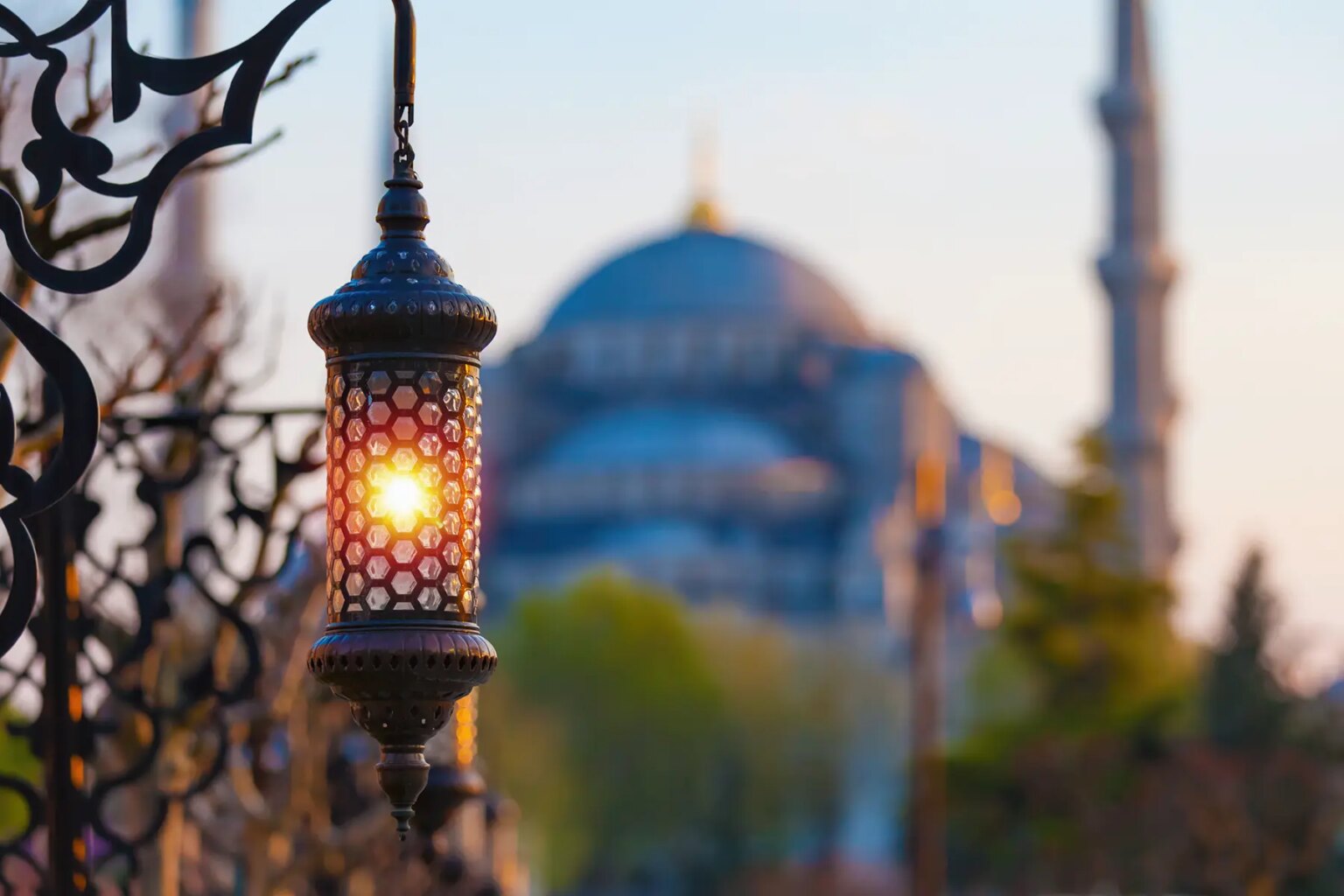For one month of the year, the world’s 1.8 billion Muslims approach business and life differently. They are required to fast from dawn to dusk over the entire period. This is known as Ramadan and is a central tenet of the Islamic faith.
When you reside in a Muslim country such as Qatar, Saudi Arabia, or the United Arab Emirates (UAE), it’s possible you’re either marking Ramadan yourself or interacting with someone who does. But if you are a first-timer, you may have some questions about what to do and what to say.
Learn all about this special time, including the following:
What and when is Ramadan?
Ramadan is one of the months in the Islamic calendar. The month has been around since ancient times and originally meant ‘scorching heat‘.
During Ramadan in 610 CE, the Prophet Muhammad received the first verses of the Qur’an, Islam’s sacred text, from the angel Gabriel. To commemorate this revelation (i.e., Laylat Al-Qadar), Muslims practice self-restraint through fasting, communal prayer, and charity, as acts of spiritual purification.

The Islamic calendar follows a lunar cycle and lasts 354 or 355 days. That means that Ramadan occurs at different times each year and can last either 29 or 30 days. Because the Islamic day begins at sunset, the exact dates depend on when the new moon appears. Moreover, the beginning and end may differ from country to country.
Ramadan is the ninth month of the Islamic calendar. What follows is Eid al-Fitr (i.e., Sugar Fest), a two-day festival celebrating the end of the fasting period. This is one of the two major Muslim festivals. The other is Eid al-Adha (i.e., Feast of Sacrifice), which is approximately two and a half months later.
Given its importance as one of the five pillars of Islam, even otherwise secular Muslims often observe Ramadan. The other pillars include:
- The declaration of faith
- Prayer five times a day
- Charity (Zakat or Sadaqah)
- A pilgrimage to Mecca (Hajj)
When is Ramadan in 2025, 2026, and 2027?
While specific dates change annually, Ramadan typically falls between late January and March:
- 2025: 28 February – 29 March
- 2026: 17 February – 19 March
- 2027: 7 February – 8 March
How does it affect my life and my business?
Ramadan affects the lives of millions, as it’s a time for personal reflection. Professionals working with Muslim colleagues or traveling within the Islamic world will notice some changes in office culture as well.
For starters, some of your colleagues won’t be eating or drinking at their desks. Meetings will likely be rescheduled or you will be invited to late-night social gatherings. Lastly, you’ll probably be working shorter hours than usual.

The fast means no eating, drinking (not even water), smoking, or sexual activity during daylight hours. Medicines are forbidden during the fast, but sick people aren’t required to observe at all. Women who are menstruating are not permitted to fast, however, they are expected to make up the missed days.
Even in countries where Ramadan is not widely celebrated, a little consideration can go a long way. Suggest rescheduling work lunches or drinks to the evening, or to after Ramadan. Allow Muslim staff to leave an hour earlier in lieu of their lunch break over the month. In many places such as New York (PDF), you’d only be following the law.
Conducting business during Ramadan
Non-Muslim expats may need to make some adjustments depending on the country they’re in. Office hours may change, as offices and government departments may be shut. For example, working days in the UAE are two hours shorter than usual – for everyone.
In some places, people may take a longer midday break and return to work after breaking their fast. This occurs particularly when Ramadan coincides with winter. Consequently, you may find that no one turns up to a weekly afternoon meeting or conference call.
Project managers may need to plan for and factor in delays; it won’t hurt to adopt an empathetic leadership style. Anecdotal evidence abounds of cross-border teams facing problems due to tired staff, lowered productivity, missed deadlines, inflated budgets, and time lost due to sick days. With the fasting day stretching to nearly 15 hours in the Arab world (and longer in northern Europe and Canada), staying on course can be a challenge.
It’s a good idea to ask if meetings conflict with the prayer timings during business hours. If so, you might want to reschedule them for the mid-morning instead.
I’m traveling in the Muslim world during Ramadan
Across the Muslim world, business is much more relaxed during Ramadan. There will be shorter working hours and decisions will be made at a slower pace. When Ramadan coincides with the summer months or school holidays – as it did in 2019 – many people book their annual vacations during this time and defer major decisions until later.
Naturally, breakfast and lunch meetings are a no-go. Since not all Muslims participate in fasting, it’s acceptable to ask if a person is or is not. However, joking about it, or talking about how intermittent fasting helped you lose weight, isn’t. Muslim friends and staff appreciate the courtesy anywhere.

Restrictions apply to almost everyone
Depending on your location, you may find a majority of food and beverage outlets closed. Some countries have specific laws against eating, drinking, smoking, and chewing gum in public (sometimes even in your own car!). Often, Muslims observe dress code regulations more strictly during Ramadan; both men and women must cover their shoulders and knees. These laws also apply to non-Muslim residents and tourists.
When the fast ends, shops often close for a short time as staff breaks their fast. However, they usually stay open far longer, late into the night. Again, airport queues may be longer than normal at specific times, so best to factor in a little extra time.
Ramadan is a great time to experience a city in a completely different light. There are often events and food streets specially organized for its duration. In Istanbul, Türkiye, mosques and trees are lit up, there are night markets selling treats and religious items, and the city generally wears a festive air. Some cities, such as Dubai, have areas where life carries on as normal during the day. However, you might have to drive around for a while to find a lunchtime café in other districts.
My office wants to host an iftar, what’s that?
Iftar is the breaking of the fast at sundown. It is often a big communal meal, and Muslims generally include their non-Muslim friends and colleagues as well.
As a business owner, it’s also good form to host one of these meals. Iftar is typically an extensive buffet for family, friends, colleagues, or underprivileged members of the community. It is important to seek guidance from local colleagues, though. There are specific customs to follow whether you’re the host or a guest.
Since Islam forbids alcohol, bringing or serving it would not be appreciated. Also, it’s polite to show up on time and to wait until your host invites you to begin eating. This is even the case when food has already been laid out or served. Your host is likely waiting for the moment when it is possible to start eating.

In Asia or the Arab world, you could even be invited to a late-night suhoor. Suhoor – or sehri in India and Pakistan, and sahur in Singapore and Malaysia – is the pre-dawn meal before the day’s fast. Corporate suhoors are now commonplace in countries with a significant Muslim population. These events often begin around 22:00 and usually end by midnight.
Both traditions are a great way to learn about a new culture through your friends’ or colleagues’ perspectives. If you are invited to an iftar or suhoor, approach these gatherings as a time to build a relationship. Do not see it as a place to discuss the finer points of a deal.
What should I say to someone who’s fasting?
There are two appropriate greetings during Ramadan. You can say Ramadan Kareem (wishing them a generous Ramadan) and Ramadan Mubarak (which means ‘have a blessed Ramadan’). Greeting with ‘happy Ramadan’ may cause offense, as many Muslims focus on the spiritual aspect of the season.
When approached with respect, Ramadan is a great time to make new friends and even build new business relationships. If you are visiting someone who’s celebrating Ramadan, you can take them a gift (just make sure it’s halal!). A box of fine dates or sweets made with dates (such as a cake or jam) will be appreciated. Muslims break their fast with dates to restore their blood sugar levels.
Useful resources
- Islam Online – a website with information about the Islamic religion, including Ramadan and the hajj
- Visit Qatar – a website with information about Ramadan in Qatar
- Visit Saudi – a website with information about Ramadan in Saudi-Arabia
- U.AE – official government website with information about Ramadan in the UAE




